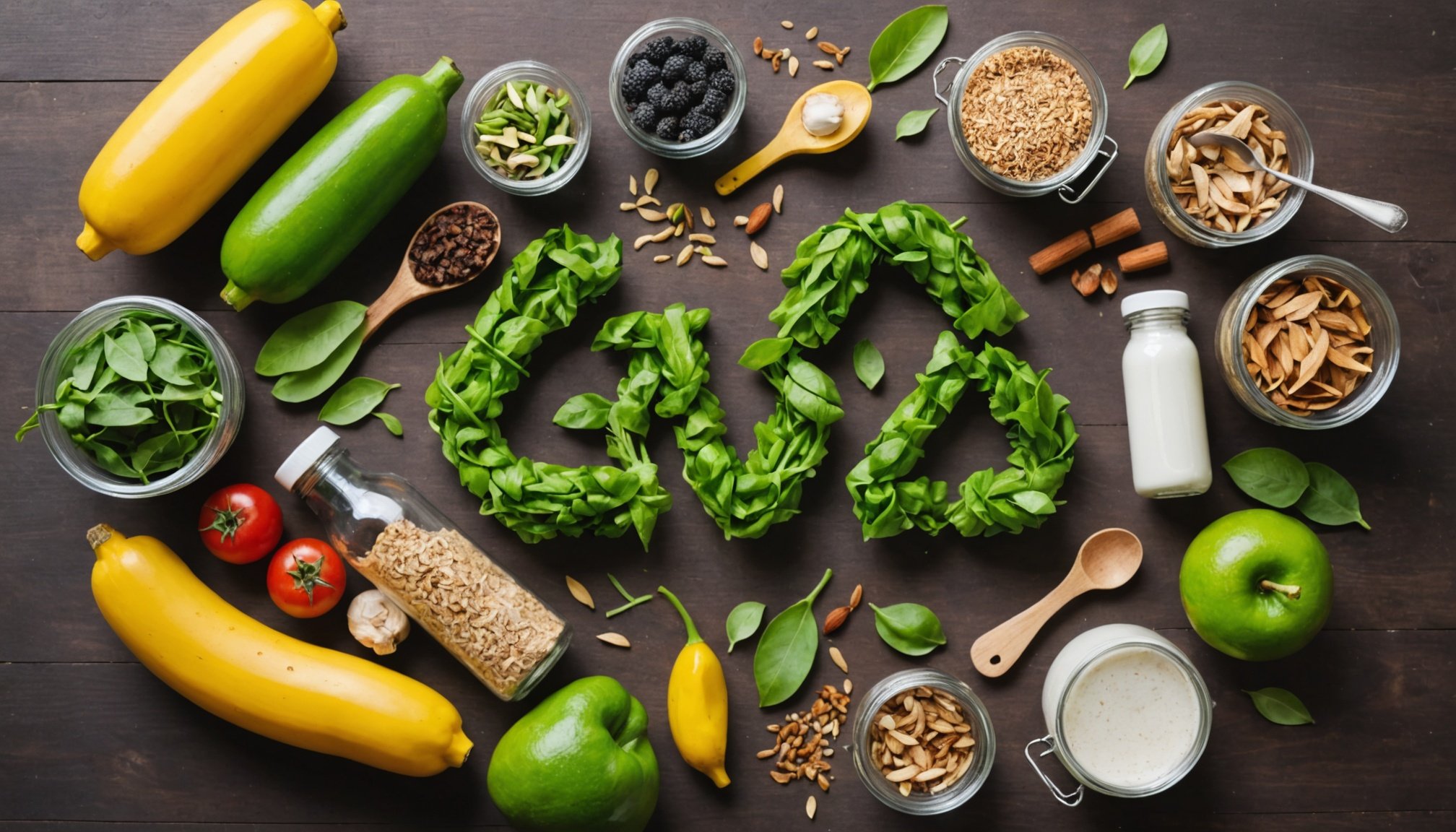Uncertain about how to reduce waste while enhancing your well-being? A zero-waste lifestyle not only minimizes your environmental footprint but also contributes significantly to your health. From improved nutrition to mental clarity, embracing this sustainable approach can transform daily habits and foster a conscious connection to nature. As you shift towards mindful consumption, discover practical methods to enhance your life while preserving the planet. Take the first step toward a healthier you and a cleaner world today.
Understanding the Zero-Waste Lifestyle
Exploring the zero-waste lifestyle reveals a commitment to minimizing waste and maximizing sustainability. At its core, zero waste involves designing and managing products and processes to systematically avoid and eliminate the volume and toxicity of waste and materials. The ultimate goal is to conserve all resources by means of responsible production, consumption, reuse, and recovery.
Additional reading : Transforming Mental Wellness: Innovative Ways Art Museums Can Implement Therapeutic Art Programs for Visitors with Mental Health Challenges
Principles of Zero-Waste Living
The principles of zero-waste living are straightforward and impactful. They include:
- Refuse what you do not need
- Reduce what you do need
- Reuse by using what you have
- Recycle what you cannot refuse, reduce, or reuse
- Rot (compost) the rest
Historical Context and Evolution
The zero-waste movement has evolved significantly since its inception. Initially, it was a grassroots initiative aimed at reducing landfill waste. Over time, it has grown into a global movement, advocating for sustainable living practices.
Topic to read : Revolutionizing Stroke Recovery: The Impact of Augmented Reality Tools on Patient Rehabilitation
Importance of Sustainability
In today's society, the importance of sustainability cannot be overstated. As environmental concerns mount, adopting a zero-waste lifestyle is a proactive step towards a healthier planet. By embracing sustainable living, individuals contribute to a more sustainable future, ensuring resources are available for generations to come.
Health Benefits of a Zero-Waste Lifestyle
Embracing a zero-waste lifestyle offers numerous health benefits that enhance both physical and mental well-being.
Improved Physical Health
Reducing exposure to toxins is a significant advantage of a zero-waste lifestyle. By minimizing the use of single-use plastics and opting for natural products, individuals can decrease their contact with harmful chemicals. This approach not only benefits personal health but also contributes to a healthier environment.
Mental Health Benefits
A zero-waste lifestyle promotes decluttering and simplifying life, which can have profound effects on mental health. Living with less clutter reduces stress and anxiety, fostering a more serene and organized living space. The act of simplifying life encourages mindfulness and a sense of accomplishment, enhancing overall wellness.
Nutritional Health
The connection between a zero-waste diet and nutritional health is compelling. By focusing on whole, unpackaged foods, individuals can improve their diet and reduce waste simultaneously. This approach encourages the consumption of fresh, organic produce, leading to better personal health outcomes.
- Physical Health: Reduced toxins
- Mental Health: Less stress
- Nutritional Health: Better diet
The zero-waste lifestyle not only benefits the planet but also enhances personal wellness, making it a holistic approach to health.
Environmental Impact of Reducing Waste
Exploring the profound effects of waste reduction on the environment.
Waste Generation and Environmental Consequences
The environmental sustainability of our planet is heavily impacted by waste generation. According to the World Bank, global waste is expected to increase by 70% by 2050 if current trends continue. This alarming statistic highlights the urgent need for effective waste reduction strategies. By minimizing waste, we can significantly decrease our ecological footprint.
Lowering Carbon Emissions
Reducing waste plays a crucial role in lowering carbon emissions. When waste is properly managed, less methane—a potent greenhouse gas—is released from landfills. This contributes to environmental sustainability by helping mitigate climate change effects.
- Waste Reduction leads to:
- Fewer landfills
- Lower greenhouse gas emissions
- Improved air quality
Climate Change and Resource Depletion
The role of waste in climate change cannot be overstated. As waste decomposes, it releases harmful gases, exacerbating climate change. Moreover, excessive waste contributes to the depletion of natural resources, threatening environmental sustainability. By adopting waste reduction practices, we can preserve these resources for future generations and reduce our ecological footprint.
Waste reduction is not just an environmental necessity but a pathway to a more sustainable and resilient future.
Practical Tips for Embracing Zero Waste
Explore actionable strategies for a sustainable lifestyle.
Simple Steps to Start Reducing Waste at Home
Adopting zero waste practices at home can be straightforward. Begin by assessing your current waste patterns. Identify areas where you can refuse unnecessary items, such as junk mail or single-use plastics. Implement a waste reduction strategy by making small, consistent changes. For instance, switch to reusable bags and containers, and compost organic waste.
Ideas for Zero-Waste Shopping and Meal Preparation
Embrace sustainable practices by planning meals around bulk and unpackaged foods. Bring your own containers to the store to reduce packaging waste. Opt for fresh, local produce to minimize your ecological footprint. A weekly meal plan can help avoid food waste and ensure all ingredients are used efficiently.
- Zero waste tips for shopping:
- Use cloth bags
- Choose bulk items
- Support local farmers
Resources for Finding Zero-Waste Products and Services
Numerous resources exist to support your zero waste journey. Online directories can help locate stores offering sustainable practices and products. Consider joining local zero-waste communities for shared tips and waste reduction strategies. These networks often provide valuable insights into eco-friendly alternatives and services, fostering a more sustainable lifestyle.
Overcoming Challenges in a Zero-Waste Journey
Exploring common obstacles and solutions.
Common Misconceptions
Embracing a zero-waste lifestyle often involves navigating several misconceptions. Many believe that achieving zero waste is an all-or-nothing endeavor. However, it's essential to recognize that small, incremental changes can lead to significant impacts over time. Another common misconception is that zero waste is costly. In reality, by reusing and recycling, individuals can often save money.
Dealing with Social Pressures
Social pressures and the convenience culture pose substantial challenges to the zero-waste journey. Friends and family may not understand or support your commitment to waste reduction. To combat this, educate them about the benefits of zero waste. Share personal anecdotes of how adopting sustainable practices has enriched your life. This can inspire others to join your efforts.
Strategies for Success
Creating a zero-waste lifestyle in a society driven by convenience requires strategic planning. Here are some strategies to overcome these challenges:
- Educate yourself and others
- Plan ahead to avoid convenience traps
- Connect with like-minded communities
These solutions provide a roadmap to overcoming the challenges of zero waste, transforming obstacles into opportunities for growth and change. By focusing on these strategies, individuals can navigate the common obstacles of a zero-waste lifestyle with confidence and ease.
Inspiring Case Studies and Testimonials
Discover the transformative power of zero waste through real-life experiences.
Profiles of Successful Zero-Waste Adopters
Zero waste success stories abound, showcasing individuals and communities thriving with sustainable practices. For example, Bea Johnson, often hailed as the pioneer of the zero-waste movement, transformed her family's lifestyle, drastically reducing their waste output. Her journey demonstrates that adopting a zero-waste lifestyle is achievable and impactful.
Impact on Health and Environment
The influence of zero-waste practices extends beyond waste reduction. Participants often report improved health and a greater connection to the environment. One community initiative in Kamikatsu, Japan, has achieved an 80% recycling rate, significantly decreasing landfill waste and enhancing local environmental conditions. These success stories emphasize the tangible benefits of sustainable living.
Lessons and Advice
Those living a zero-waste life offer valuable insights. A common lesson is the importance of starting small and gradually implementing changes. Here are some key takeaways:
- Start with one area of your life
- Educate yourself continuously
- Involve your community
These testimonials highlight the potential for personal and environmental transformation through zero-waste practices, encouraging others to embark on their own sustainable journey.
Resources and Community Support for Zero-Waste Living
Exploring valuable resources to enhance your zero-waste journey.
Online Platforms and Local Groups
Engaging with community support is pivotal in adopting a zero-waste lifestyle. Numerous online platforms and local groups provide invaluable resources for zero waste enthusiasts. Websites like Zero Waste Home and forums such as Reddit's Zero Waste community offer practical advice and shared experiences. Local groups often host workshops, swap meets, and community clean-ups, fostering a supportive network.
Recommended Books, Blogs, and Documentaries
Diving into zero-waste resources can be enlightening. Notable books include "Zero Waste Home" by Bea Johnson and "The Zero Waste Lifestyle" by Amy Korst. Blogs like "Trash is for Tossers" provide daily insights and practical tips. Documentaries such as "The Clean Bin Project" showcase real-life zero-waste journeys, inspiring viewers to rethink their habits.
Engaging with the Zero-Waste Community
Participating in the zero-waste community can amplify your efforts. Attend local meet-ups to exchange ideas and support. Volunteering for zero-waste organizations allows you to contribute meaningfully while learning from others. Sharing your journey on social media can inspire and connect you with like-minded individuals, further strengthening community bonds.











